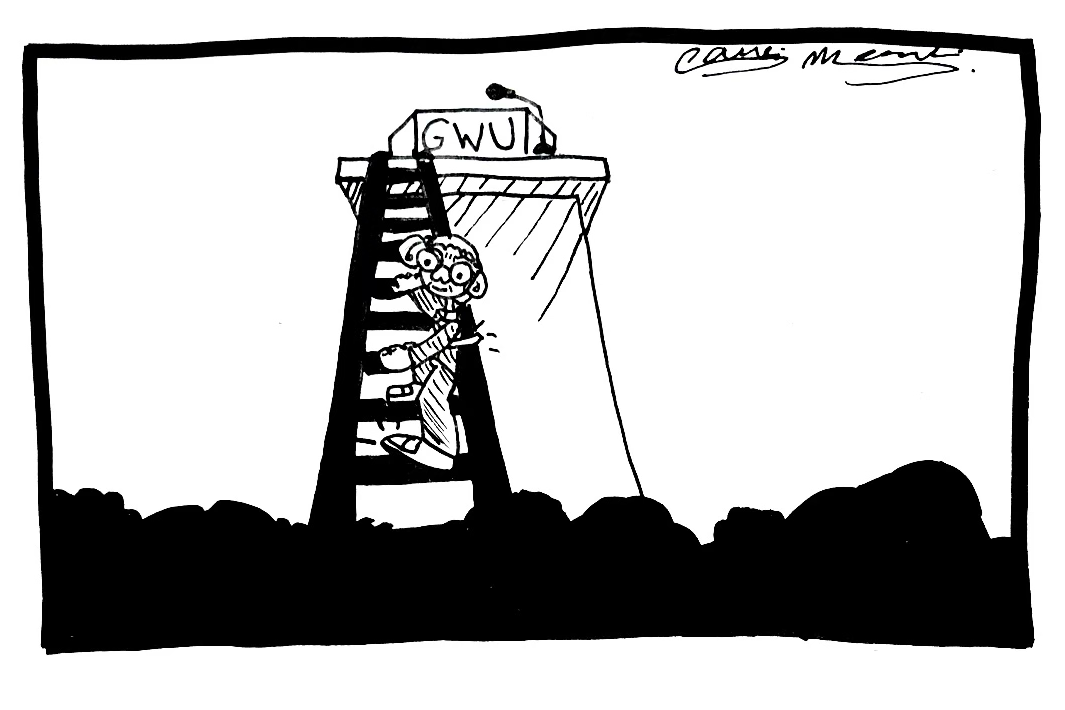Kamau Louis is a senior majoring in political science.
For me, Juneteenth has symbolized hope since I was a young child. The holiday commemorates the emancipation of enslaved African Americans and the end of chattel slavery during the Civil War. Even though I am half Haitian and half Jamaican, I still identify with and can imagine the hope that African Americans in Galveston, Texas felt when an officer of the Union army told them they were freed from slavery on June 19, 1865. I imagine it’s the same feelings my Haitian ancestors felt on Jan. 1, 1804 and my Jamaican ancestors felt 30 years later on Aug. 1, 1834 when they each claimed their freedom, respectively.
But Juneteenth only became a national holiday when President Joe Biden signed a bill last year recognizing it as such one year after the summer of protests over the murder of George Floyd, other police killings of Black people and continued racial injustice more broadly. Racially motivated attacks forced a similar moment of recognition for me during high school back in 2017 when I saw the cross of the Confederate flag adorning an old Georgia state flag that a student hung in my classroom. I quickly told my teacher that its presence made me feel uncomfortable, but he brushed off my concerns, saying my peer had a right to display it. My teacher eventually took the flag down, but partly due to the fresh memory of the shooting at a historically Black South Carolina church that reignited debate over displaying the flag. Without discussing why it was a symbol of hate, it was a performative move with no substance or heart.
Removing or redesigning flags that represent white supremacy, while important, isn’t enough on its own. I fear that this type of performative activism has seeped into Juneteenth as it’s become more mainstream over the last year. Instead of engaging in empty rhetoric this Juneteenth, we must instead recognize the change still needed to address the racism that persists in this country.
Black people have come a long way in America, but more than a century and a half after the first celebration of Juneteenth, has the United States really moved forward at all? The murder of 10 Black people at the hands of a white supremacist in a Buffalo, New York grocery store last month and the murder of Patrick Lyoya by a police officer in Grand Rapids, Michigan in April show that the people in power are ignoring and fueling racism and white supremacy. Government officials have the ability to act on these issues, but they’ve historically created policies like Jim Crow laws, redlining and other forms of racial housing discrimination, restrictive abortion regulations and the Chinese Exclusion Act that oppress rather than help people.
I love Juneteenth, and I believe our country ought to celebrate it. But all of us, and especially our leaders, must remember there is more work to do. Official celebrations of Juneteenth and highly symbolic attempts to address racism can harm as much as they can help, especially when politicians use them to deflect from their own record. Black Lives Matter Plaza is a perfect example, where Mayor Muriel Bowser renamed 16th Street NW and commissioned muralists to paint yellow letters on the road amid protests for racial justice in 2020. Despite temporarily closing the new plaza to vehicle traffic, cars returned to the street in 2021 in a microcosm of Bowser’s failure to address a year-over-year increase in pedestrian deaths, especially among Black residents in Wards 7 and 8. Renaming a street does nothing to address police brutality or the deeper effects of racial inequity on safety and wellbeing, real issues that require more than a symbolic gesture to solve.
The University’s recent news that it will retire the Colonials moniker is another example of this phenomenon. The announcement came four years after students’ initial petition on the issue and more than two years after the Board of Trustees first formed a special committee to consider the renaming. Even now, we still have to wait another year for GW to choose a new name. Instead of focusing on the moniker alone, the University should make its cost of attendance more affordable for all and especially low-income students. Given that D.C. is a historically Black city, officials should work to increase the small population of Black students at GW, especially among Black men who make up only three percent of GW’s approximately 27,000 students. And in light of serious allegations that officials allowed racist behavior among students and coaches on its tennis team to go unchecked, the University needs to support Black students and other students of color rather than ignore their concerns.
I’m tired of important but ultimately meaningless gestures – we need real change at the government level and at institutions like GW. This Juneteenth, we as a nation need a reckoning not just around race relations but on housing, education, healthcare, transportation, taxes, government and immigration. Actually addressing the issues people face will transform our country, ease tensions and end political polarization. I hope you celebrate this Juneteenth with your friends and family but also think about the change you can create in your life to better help our beautiful country – support your friends, family and the people around who are struggling to deal with racism both physically and emotionally. To quote W.E.B. Du Bois, “A system cannot fail those it was never meant to protect.”



